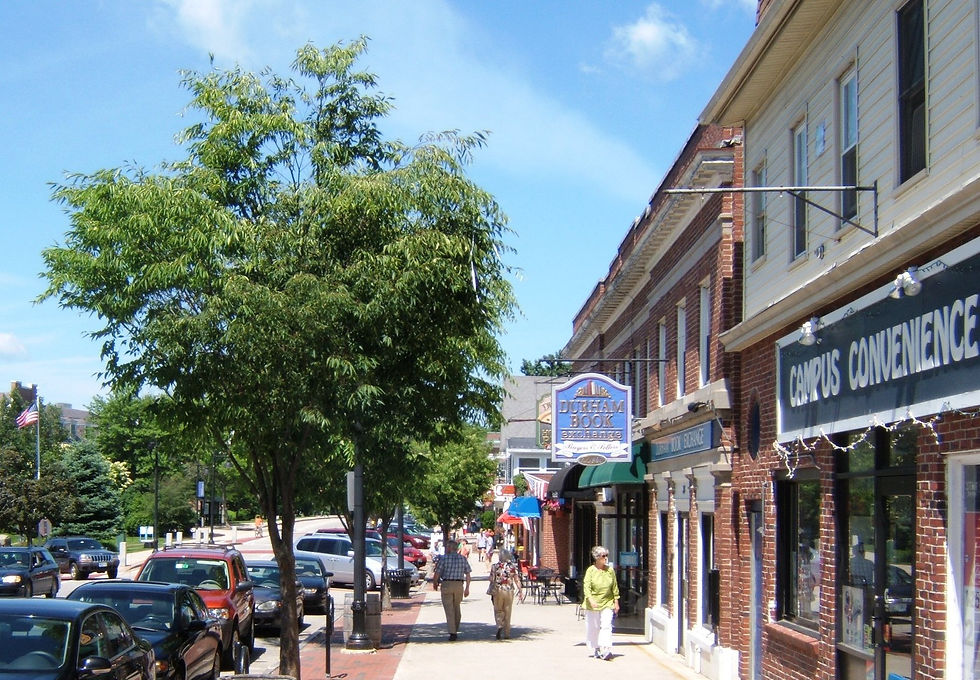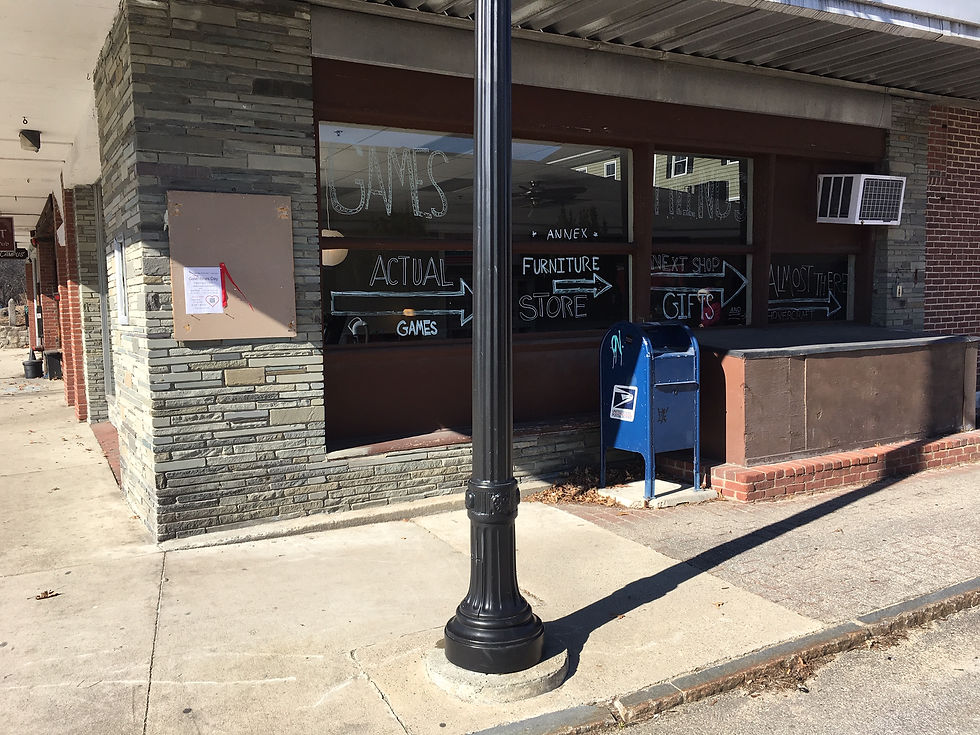Can Durham Find Balance?
- Al
- Feb 10, 2019
- 3 min read

Durham's primary strength is its amazing mix of educational and recreational opportunities. UNH and the Oyster River School System help attract families, undergraduates students, graduate students, professionals, and retirees. With this diverse group, it is a challenge to preserve the spaces we value, develop commercial spaces to meet our needs, and stabilize our costs.
Preserving What We Value

Durham has some incredible town-owned land. Wagon Hill Farm, The Oyster River Forest, Doe Farm, and The Sweet Trail are all a short distance from most neighborhoods. When the Town accepted responsibility to conserve these properties, it also accepted the obligation to maintain them.

Through the efforts of the Conservation Commission and the Land Stewardship Committee, the Town hired Ellen Snyder as Land Stewardship Coordinator. She has worked to develop a management plan for our properties and is using volunteers to build and maintain a trail network. Adequate funding for her position and the Public Works Department is necessary to protect our assets.
Developing Commercial Spaces to Meet our Needs

Former Durham Economic Development Director Mary Ellen Humphrey frequently talked about Durham's need to develop commercial spaces in appropriate areas. The addition of Harmony Homes at the former Durham Business Park, and the current construction of RiverWoods Durham exemplify this idea.

Looking ahead, we need to focus our attention on the Central Business District and the West Edge.
Currently, many of the buildings in the downtown core area have significant capital needs. Our aim is to improve these spaces and encourage diverse businesses to thrive. That requires both our support of existing locally-owned businesses as well as cultivating new ones. We need to solve the puzzle of upgrading commercial space while retaining affordable rental rates.

The West Edge is a large UNH property located on Main Street as you head out of town towards Route 4. The University would like companies to build spaces here where corporations can gain a foothold in Durham and that allow collaboration with their educational programs. The new UNH President has worked on this type of project at the University of North Carolina.
Since Durham and UNHs' fates are intertwined, we need to examine how our current zoning will impact this vision.

Recently passed amendments to town zoning were a step in redevelopment of the Central Business district. The goal of these changes was to upgrade the current commercial space while limiting the residential component to smaller, two-bedroom apartments.
Over time, the hope is that new multigenerational businesses will draw residents downtown, and the two-bedroom apartments will have the possibility of transitioning to non-undergraduate housing.
Controlling our Costs

The Town's previous three budgets utilized new revenues to offset new spending, and the tax rate remained flat. This year, new revenue was flat, and the net budget increased over 3%.
Our ability to control future tax rates will require a combination of thoughtful budget planning and cultivating new revenue.

Central to developing strategies to create new revenue will be the selection of a new economic development director. Members of the Economic Development Committee are about to begin reviewing applications for this position. The Town Planner, the Planning Board, and the Town Council must work together to evaluate and refine current zoning ordinances.
Accepting the principle that conservation and development are mutually beneficial is key to helping Durham find balance.



Comments